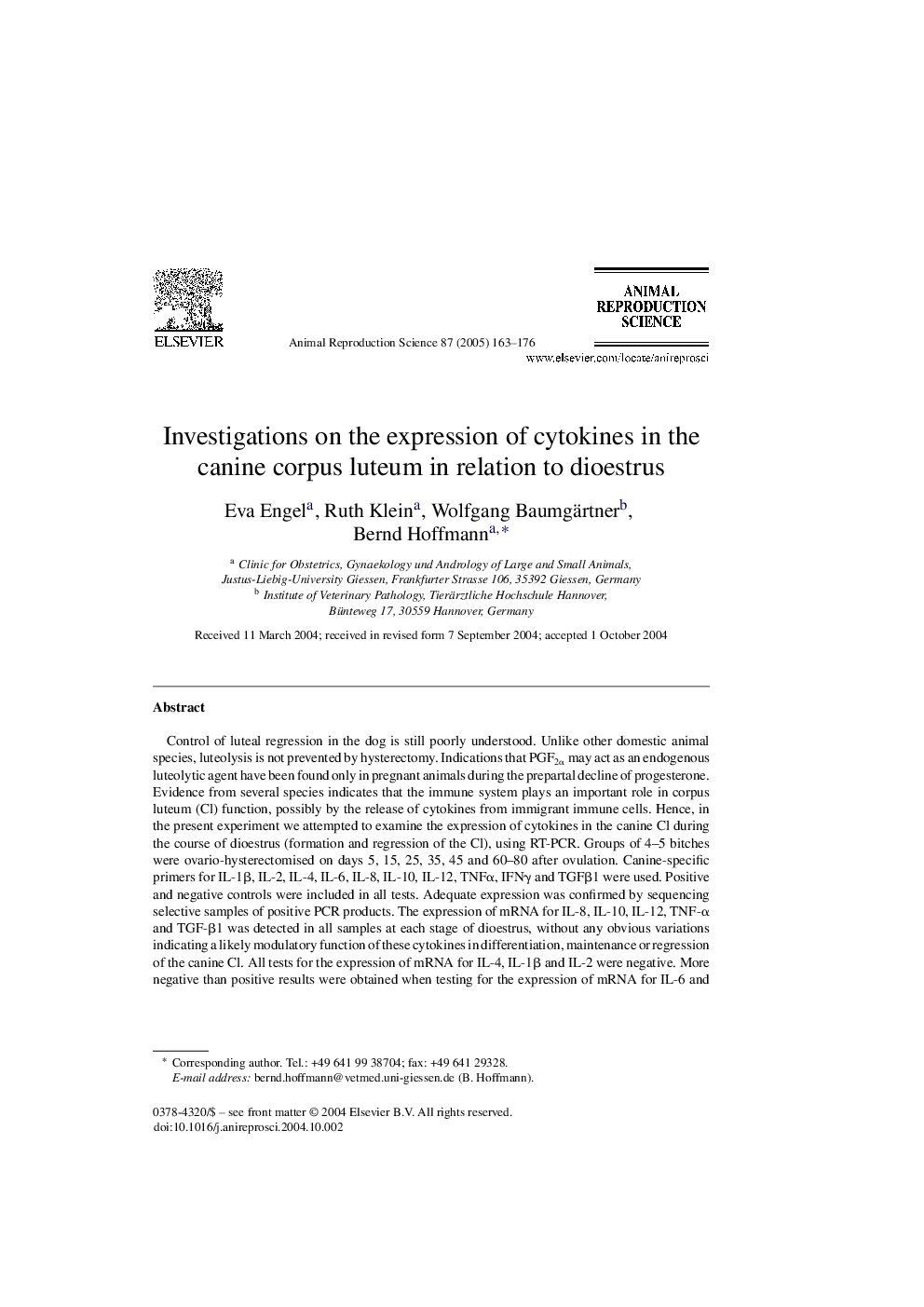| Article ID | Journal | Published Year | Pages | File Type |
|---|---|---|---|---|
| 9900323 | Animal Reproduction Science | 2005 | 14 Pages |
Abstract
Control of luteal regression in the dog is still poorly understood. Unlike other domestic animal species, luteolysis is not prevented by hysterectomy. Indications that PGF2α may act as an endogenous luteolytic agent have been found only in pregnant animals during the prepartal decline of progesterone. Evidence from several species indicates that the immune system plays an important role in corpus luteum (Cl) function, possibly by the release of cytokines from immigrant immune cells. Hence, in the present experiment we attempted to examine the expression of cytokines in the canine Cl during the course of dioestrus (formation and regression of the Cl), using RT-PCR. Groups of 4-5 bitches were ovario-hysterectomised on days 5, 15, 25, 35, 45 and 60-80 after ovulation. Canine-specific primers for IL-1β, IL-2, IL-4, IL-6, IL-8, IL-10, IL-12, TNFα, IFNγ and TGFβ1 were used. Positive and negative controls were included in all tests. Adequate expression was confirmed by sequencing selective samples of positive PCR products. The expression of mRNA for IL-8, IL-10, IL-12, TNF-α and TGF-β1 was detected in all samples at each stage of dioestrus, without any obvious variations indicating a likely modulatory function of these cytokines in differentiation, maintenance or regression of the canine Cl. All tests for the expression of mRNA for IL-4, IL-1β and IL-2 were negative. More negative than positive results were obtained when testing for the expression of mRNA for IL-6 and IFN-γ, leading to the conclusion that expression of these two cytokines is at a low level, and no conclusion can be drawn as to their involvement in control of Cl function.
Related Topics
Life Sciences
Agricultural and Biological Sciences
Animal Science and Zoology
Authors
Eva Engel, Ruth Klein, Wolfgang Baumgärtner, Bernd Hoffmann,
